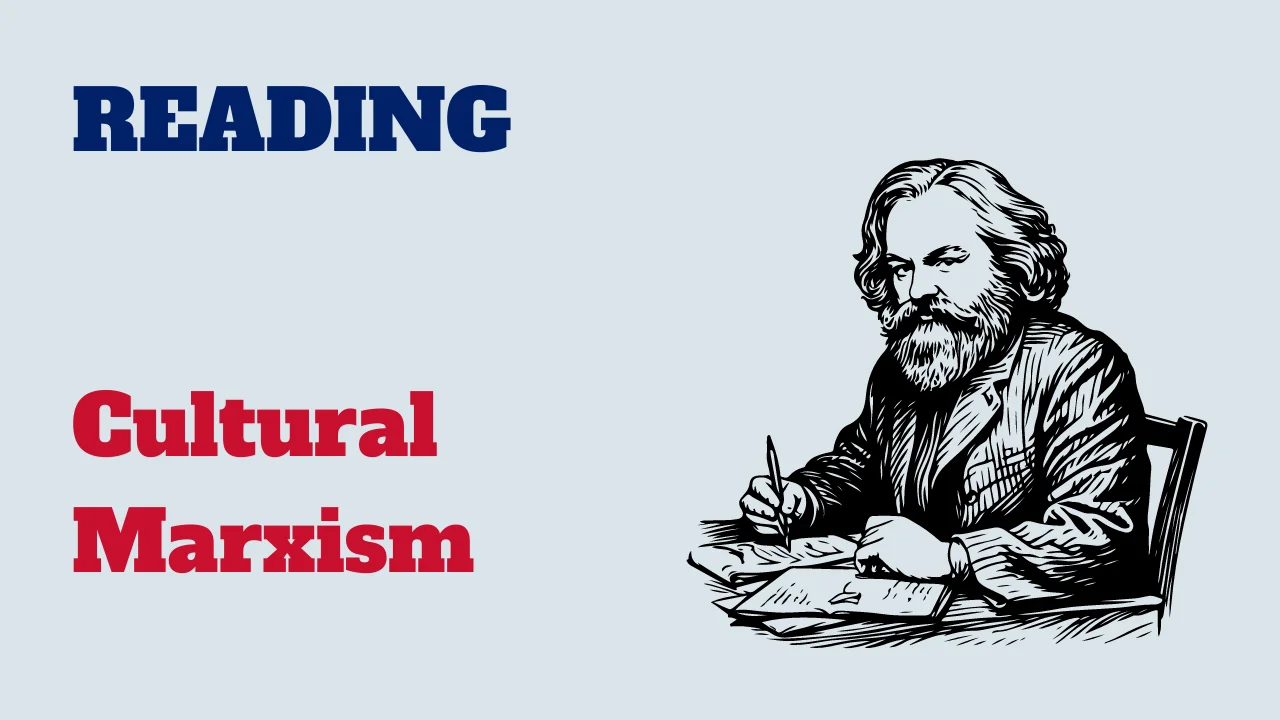In this reading activity, we will explore the concept of “Cultural Marxism,” a term often associated with a far-right conspiracy theory. This theory falsely attributes responsibility to the Frankfurt School for various progressive movements, identity politics, and political correctness.

Let’s delve into the text to understand the origins, spread, and implications of this conspiracy theory.
Text: Cultural marxism
Cultural Marxism is a term often used in political discourse to describe a theoretical framework that views culture, rather than economics, as the primary battleground for social conflict and change. It originated from the Frankfurt School of critical theory, particularly the work of scholars like Theodor Adorno, Max Horkheimer, and Herbert Marcuse, who sought to understand the role of culture in maintaining and perpetuating social inequalities.
At its core, Cultural Marxism critiques the ways in which dominant cultural norms, values, and institutions reinforce systems of oppression, such as capitalism, patriarchy, and racism. It analyzes how cultural products, including literature, art, media, and education, serve to maintain existing power structures and marginalize certain groups.
Critics of Cultural Marxism often argue that it promotes identity politics, political correctness, and social justice activism, which they view as threats to traditional values and freedoms. They claim that Cultural Marxism seeks to undermine Western civilization and promote radical leftist agendas by infiltrating cultural institutions and imposing progressive ideologies.
However, proponents of Cultural Marxism argue that it offers valuable insights into the intersectionality of oppression and the ways in which culture can perpetuate systemic injustices. They advocate for cultural critique and social change to challenge dominant narratives and create more inclusive and equitable societies.
Despite the controversy surrounding the term, cultural marxism remains a subject of debate in political and academic circles, shaping discussions about power, identity, and social justice in contemporary society.
Comprehension questions
Through this exploration of the “Cultural Marxism” conspiracy theory, we have gained insights into its origins, spread, and implications. It is important to critically analyze such conspiracy theories and understand their historical context to combat misinformation and promote informed discourse.



